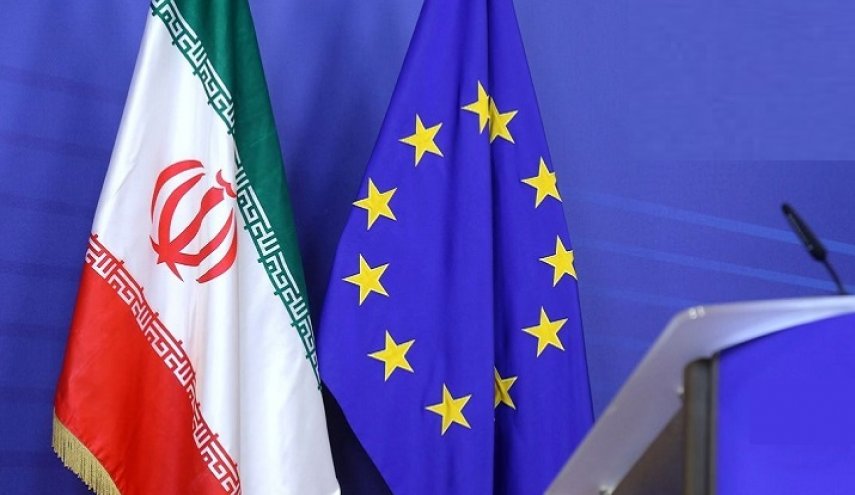
Prior to this, during the past 30 months since the implementation of the JCPOA, signed between Iran and P5+1, in January 2016, particularly in the period after Trump took office as US president, Washington had always failed to demonstrate its full commitment to its pledges under the deal.
This comes as in this timespan, the Europeans, who have always insisted upon continuing the implementation of the JCPOA and described it as a win-win agreement, also failed to completely fulfill their commitments under the deal due to the obstacles created by the White House.
In fact the resumption of Iran’s banking relations with other countries, was the most important part of the deal that remained far from being implemented following the going into effect of the JCPOA.
In the very beginning after Trump announced during his election campaign that he would scrap the Iran nuclear deal, all major European banks, which conducted transactions with Washington in the dollar, became very cautious in starting or resuming cooperation with Iran. Thus, Iran could develop relations only with small and medium-sized European banks.
However, now that the US has officially exited the JCPOA and unilaterally reinstated the nuclear sanctions, the Europeans are seeking solutions to counter them. On Tuesday, following negotiations between Iranian Foreign Minister Mohammad Javad Zarif and his French, British and German counterparts in Brussels, the EU foreign policy chief Federica Mogherini announced at a press conference the nine issues to be focused in expert discussions, already started today, with Iran, with a view to arriving at practical solutions in the next few weeks:
1. Maintaining and deepening economic relations with Iran,
2. The continued sale of Iran’s oil and gas condensate petroleum products and petrochemicals and related transfers,
3. Effective banking transactions with Iran,
4. Continued sea, land, air and rail transportation relations with Iran,
5. Further provision of export credit and development of special purpose vehicles in financial banking, insurance and trade areas, with the aim of facilitating economic and financial cooperation, including by offering practical support for trade and investment,
6. Further development and implementation of Memoranda of Understanding and contracts between European companies and Iranian counterparts,
7. Further investments in Iran,
8. Protection of European Union economic operators and ensuring legal certainty, and
9. Further development of a transparent, rules-based business environment in Iran. These nine issues cover all the sanctions the US plans to reinstate against Tehran to, through cooperation between Iran and Europe as well as China, Russia — which are other signatories to the JCPOA — minimize the negative impacts of Washington’s restrictions.
No sooner the JCPOA was signed between Iran and the six world powers in July 2015, than many European countries dispatched delegations to Tehran to sign economic contracts and engage in trade with companies in the Middle Eastern state. The US withdrawal, has, however, heightened concerns about the future of these agreements and collaborations. However, in the EU’s official statement, maintaining and deepening economic relations with Iran has been highly stressed to continue the cooperation, already started in the post-JCPOA era, between European countries and the Middle Eastern state by working out pragmatic solutions.
Likewise, since banning Iran’s oil exports was the first sanction imposed by the US, in their statement, Europeans has put extra emphasis on the continued sale of Iran’s oil and gas condensate petroleum products and petrochemicals and related transfers.
The EU has also drawn up a special plan to help Iranian and European banks resume transactions with each other, without the latter having to suffer any harm.
Also selected as a main issue for future discussion is the cooperation in the transportation sector, particularly air transport, between Iran and Europe, which later became one of the main indices of the implementation of the JCPOA. In the post-JCPOA era Iran managed to sign contracts with giant aircraft manufacturers, including Airbus, Boeing and ATR, to purchase 200 airplanes.
With the US having pulled out of the JCPOA, the contract with Boeing has already been canceled. This comes as, Europeans who have already handed over 12 airplanes to Iran as part of their contracts, are doing their best to fully meet their contract commitments with the Middle Eastern state.
Among the other issues to be considered in future discussions between Tehran and other parties to the deal is the protection of EU economic operators in Iran and ensuring legal certainty for them. This comes as those European economic operators who were highly interested in participating in Iranian projects, exercised considerable caution in their activities in the country due to their US interests. In case a secure atmosphere, in which all legal guarantees are provided, is created in Iran, interested European economic firms and operators will be able to easily perform their activities in the country and expand cooperation with their Iranian counterparts.
As stipulated in Mogherini’s official statement, Europeans have placed the removal of the main obstacles, as stressed by Iranian officials, to the implementation of the JCPOA and intend to, by giving firm guarantees, preserve the deal without the US.
Nevertheless, all the 28 members of the EU in addition to China and Russia, not just the three signatories to the deal, are involved in Europe’s new project to preserve the JCPOA. They plan to design a new system to activate a mechanism for countering US sanctions and minimizing their negative impacts.
Source: Iran Daily (Tehran-based English language newspaper)
9417**1771
Follow us on Twitter @IrnaEnglish
 solhkhabar | Peace International News Agency Peace International News Agency , Peace News , International Agency News of Peace
solhkhabar | Peace International News Agency Peace International News Agency , Peace News , International Agency News of Peace